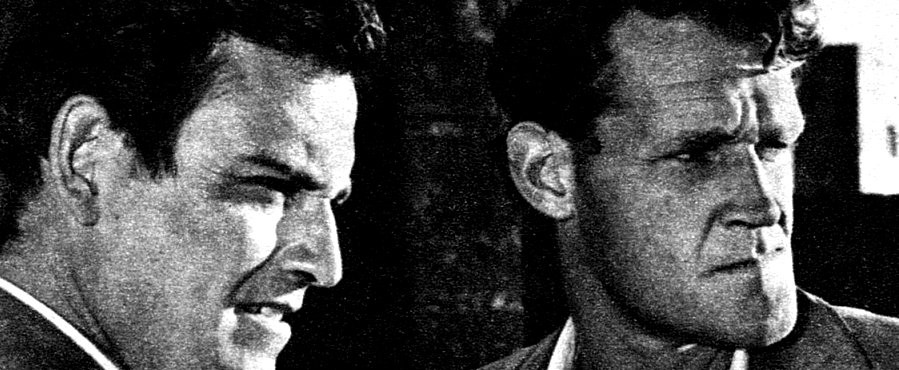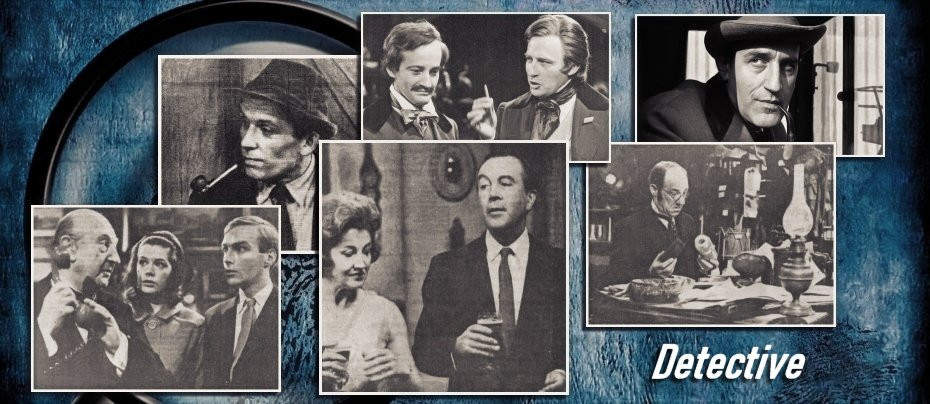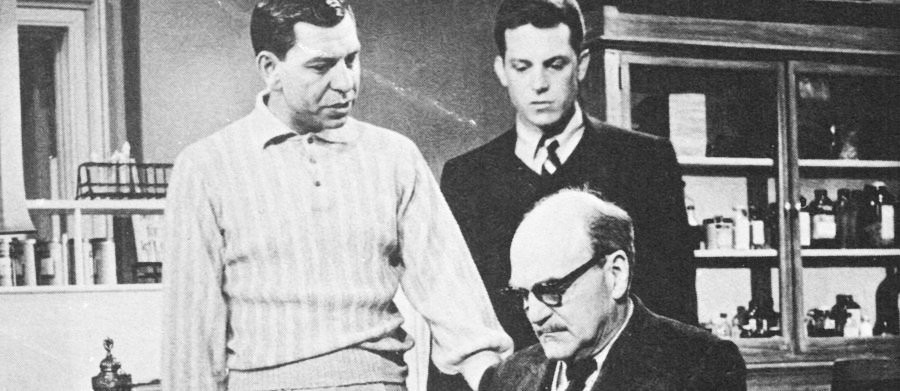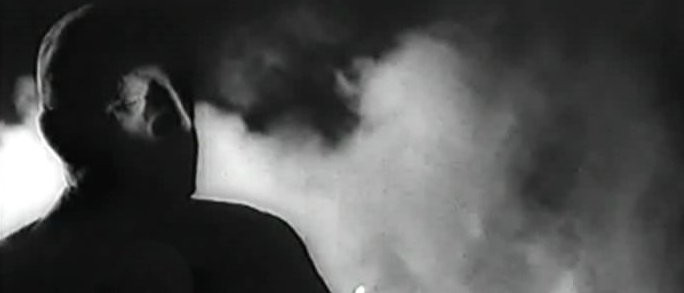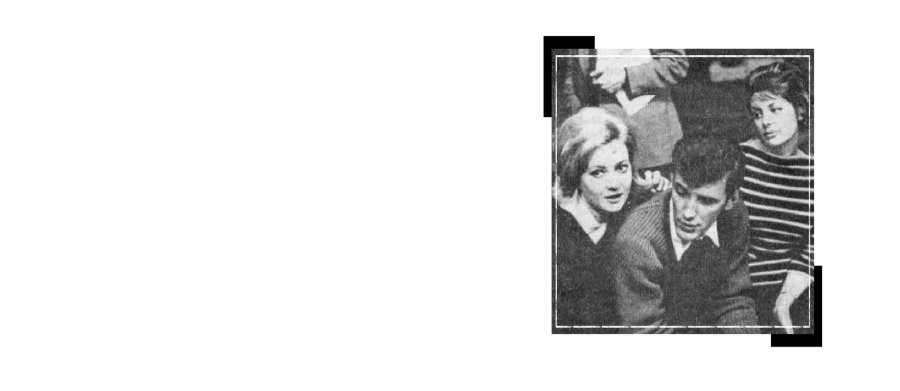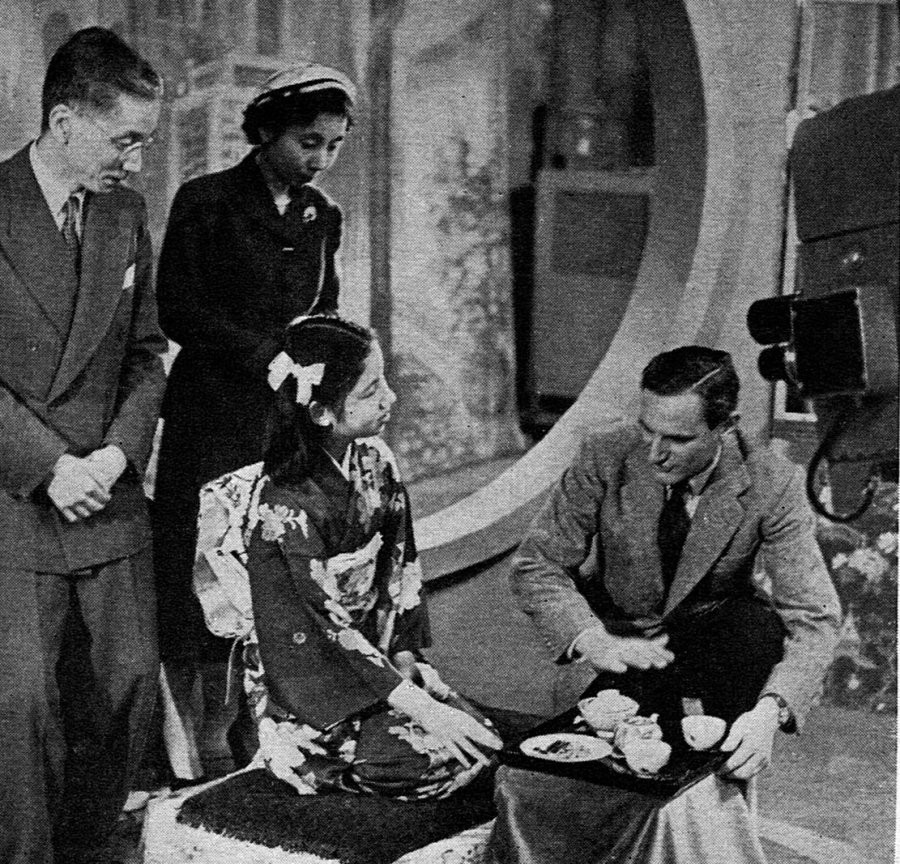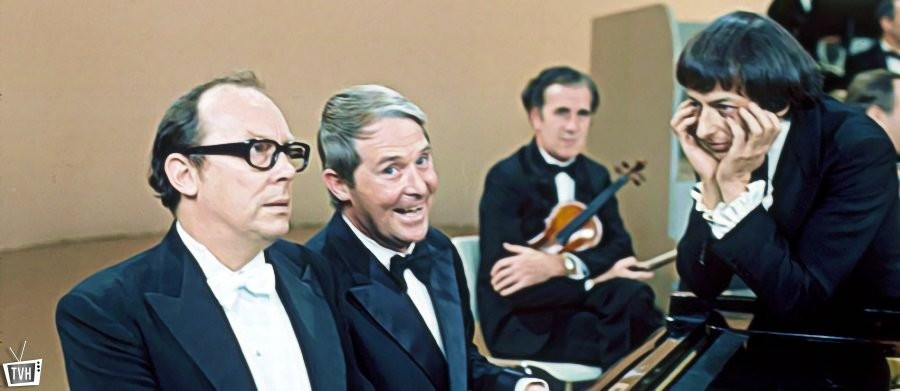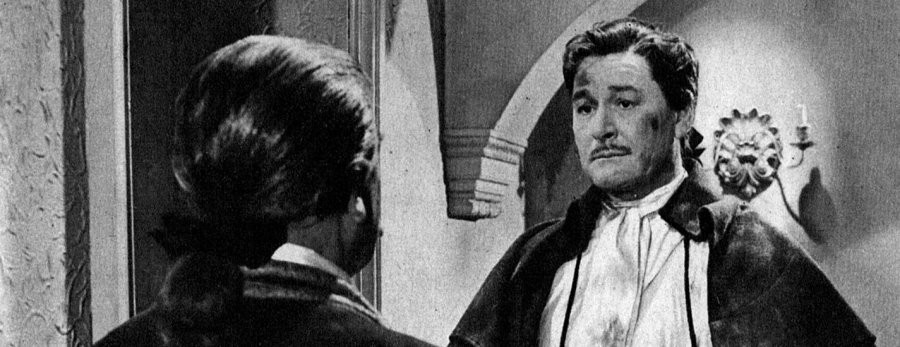
Errol Flynn Theatre
1956 - United KingdomThe Errol Flynn Theatre, which aired from 1956 to 1957, remains a fascinating, if somewhat uneven, entry in the career of the legendary Hollywood star. Known primarily for his dashing roles in golden-age adventure films like Captain Blood and The Adventures of Robin Hood, Errol Flynn’s foray into the emerging medium of television was, at the time, something of a novelty. Anthology series were all the rage in the 1950s, and Flynn, though past his prime in Hollywood terms, brought a touch of star quality to the small screen that set the show apart - at least on paper.
Produced in the United Kingdom and aimed at both British and American audiences along similar lines to Douglas Fairbanks Presents; both were made to cash in on growing television markets with international appeal, although in the case of this series the first episode had actually been made four years earlier as an intended pilot for US broadcast only and to be shown as a 'B-Movie' in UK theatres. Filmed at Bray Studios (best known for its association with Hammer Film Productions) in Berkshire, The Errol Flynn Theatre was an anthology drama series in the truest sense: each of its 26 episodes told a different, self-contained story. Flynn himself introduced each tale with a suave, avuncular air, but appeared as lead or supporting player in very few of the episodes. It was a clever use of star power, even if the production budgets and scripts sometimes failed to match the weight his name carried.
The format allowed for considerable variety — from crime thrillers to romantic dramas and moral tales. In theory, this gave the show a sense of dynamism, but in practice, the quality varied greatly. Some episodes boasted taut, engaging writing and strong supporting casts; others felt rushed or stagey, perhaps symptomatic of the television industry’s growing pains during that era. The series ranged from adaptations of classic tales such as The Duel by Alexander Dumas to domestic melodramas. Notable guests included Christopher Lee, Glynis Johns, Herbert Lom, Mai Zetterling, Jean Kent, Leslie Phillips, Arthur Lowe and Patrick Allen.
Flynn, for his part, remained a magnetic presence, even if the material didn’t always serve him well, although he only appeared in 6 of the tales in the lead role and in 5 of them he was accompanied by his wife, Patrice Wymore Flynn. His performances were occasionally hampered by uneven scripts and modest production values, but he could still command a scene with ease. There was a certain poignancy in seeing the former swashbuckler trying to reinvent himself in a new medium, clearly enjoying the challenge and variety that television offered, even if he was a far cry from the action hero of earlier decades.
While the series never quite achieved the acclaim or staying power of other anthology efforts from the same period (such as Alfred Hitchcock Presents or The Twilight Zone which came later), it remains of historical interest. For fans of Flynn, it provides a rare glimpse of the star in roles quite different from his cinematic heyday. It also serves as an example of the experimental nature of 1950s television, when film stars were still testing the waters of what was then considered a lesser medium.
Seen this show? How do you rate it?
Seen this show? How do you rate it?
Published on December 10th, 2018. Written by Laurence Marcus for Television Heaven.


